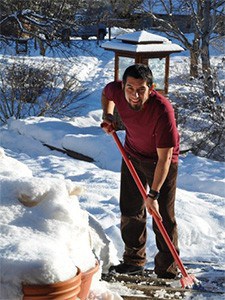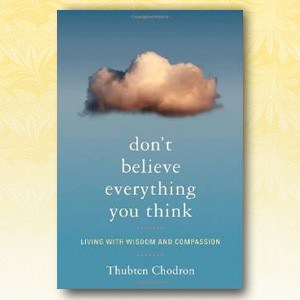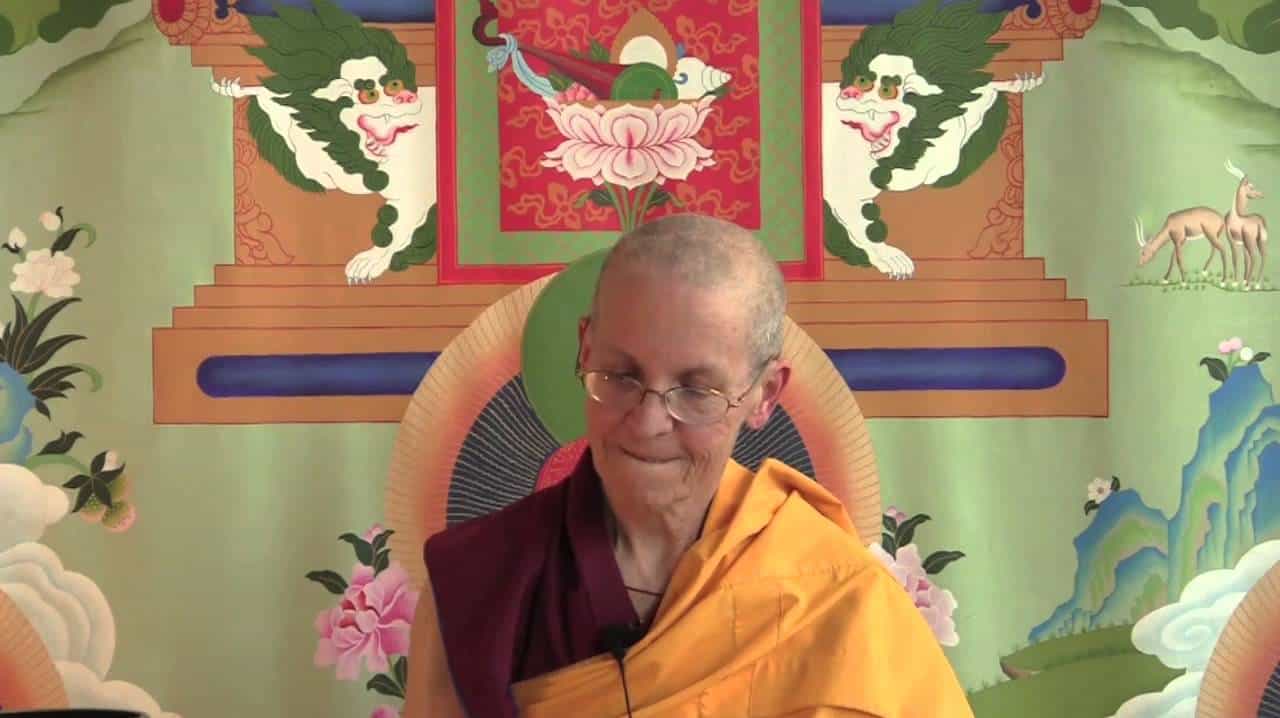선택하든 말든
선택하든 말든

이삭은 참여 방법을 공유합니다. 스라바스티 수도원 Winter Retreat는 그가 자유와 자율의 진정한 의미를 깨닫도록 도왔습니다.
옴아흠
This year I had the fortune to come to the Abbey for retreat, and the experience was truly amazing. Here Dharma is everywhere you look, and the activities in the daily schedule are a constant reminder to practice and take advantage of the precious opportunity we have. Many times I was in awe and felt filled with gratitude for the kindness received from the community. At night when the sky was overflowing with diamond-like stars I would ask myself “Am I dreaming?” I really felt great love and compassion from everyone here.
그러다가 올해 수양회에서 놀랍게도 나는 반복되는 생각을 하고 있음을 발견했다. 분노. I was irritated more easily than during any other retreat I have attended and asked myself, “Why do I have so much antagonism while I’m in such a perfect place for practice?” Although the 분노 통제할 수 없는 수준에 도달하지 않았고, 계획되지 않은 일정에 대해 불평하는 지속적이고 잔소리였습니다. 제공 service hours, the topic, the time available for sleep, the time available for study, the “rush” to get things done and go to the next activity, etc. I started to feel resistance and discomfort, yet was unable to pinpoint the reason or completely release the thoughts.
During retreat I was introduced to the teachings of NVC (Non-Violent Communication), created by Marshall B. Rosenberg. This program is based on getting in touch with our feelings and needs, listening with empathy to ourselves and others, recognizing the violence and harm created when we are out of touch with these, and learning to take responsibility for our feelings, thoughts, and actions. The program teaches a language that can help create a connection with others in which “natural giving” is possible. This giving is done with joy and the desire to contribute to life rather than out of fear of punishment, guilt, duty, or shame.
One day some of us were watching an NVC video where there was a role play about a real situation in which a manager didn’t know how to work with an employee who was continually late and caused conflict with coworkers. In a pivotal moment Rosenberg asked the audience, “What need does the employee have that is so strong that it interferes with others’ well-being?” Jack paused the video so we could think about this. Initially my mind was blank. I couldn’t see his need. Jack played the video again and Voila, there it was in plain sight—the employee’s unmet need was one that I also had but until then was not aware of. He needed autonomy.
Recognizing that need in myself was like taking a huge rock off my back. In a moment it was like seeing through a tunnel displaying reams of memories in which I had fought with myself because I needed autonomy and projected “They’re restricting me” and “They’re trying to control me.” I projected this on to everyone I perceived to be an authority. Most of my life I had been in conflict with people I have perceived as authorities. For years I had done the opposite of what society wanted me to do; I have been rude and uncooperative, because I thought people and society in general were trying to restrict my autonomy.
I saw how much mental energy and precious time I had wasted, how much suffering I had experienced and how much suffering I had caused others when I thought they were trying to make me behave as a “good” person should, to be where I was “supposed” to be, do what I “had” to do, to say what was “correct” or “appropriate,” to have a “real” education, to be a “good” team player, and on and on. I realized that for years my mind had been filled with concrete labels and judgments.
I also remembered how sad and depressed I was when I was doing what is “right” and trying to be a “good” person—in short, trying to be what I thought others wanted me to be—ignoring my own inner wisdom. Around my second year in college I started to rebel, and have done so for years since. I saw the world as an “unfair” place. It didn’t matter whether I rebelled or did what was “good” and expected of me, I didn’t feel inner peace.
I realized that in my confusion I thought that being rebellious would give me the autonomy I needed. How wrong I was! Thinking I was fighting external authorities, I was actually fighting myself. I was the one telling myself I had no choice, that I “should” do this or that.
Once I recognized my unseen need for autonomy, it was clear to me that I wasn’t fighting with anyone on the outside, but was in constant battle with my inner judge, the self-centered thought that created the story that it was “me against the world.”
Once I saw myself reflected in the person in the NVC video, I was able to understand why I continuously arrived late to wherever I was going, even when I could have arrived on time. Now I understand why I have quit jobs when I thought what they were asking me to do was not what I wanted to do. I was going against the grain with no skill and was even causing harm to others because the afflicted thought “they’re taking away my independence” would infuriate me, and with that kind of thinking, everyone loses.
가장 놀라운 점은 실제로 내가 항상 자율성을 갖고 있다는 사실이었습니다. 나는 항상 선택의 여지가 있었다. 사회의 구조나 권위나 외부의 누구에게도 반항할 필요가 없었다. 참된 자유를 가져다주는 반역은 자기중심적인 생각에 반역하는 것입니다. 자기 중심적인 생각을 따르는 것은 감옥입니다. 그것은 나에게 정신적 고통을 연기하는 것 외에 선택의 여지가 없었습니다. 내 자신의 친절한 마음과 접촉하고 그 공간에서 행동하는 것을 허용하지 않음으로써 내 자율성을 제한했습니다.
동정심 많은 선택을 할 때 우리는 다른 사람들의 감정을 생각하고 그들에게 어떻게 도움이 되는지 고려합니다. 그것은 우리에게 무엇을 할지 선택할 수 있는 자유를 줍니다. 기여 방법을 선택할 수 있는 기회를 제공합니다. 이를 통해 기쁨과 결합된 엄청난 창조적 에너지가 발생하고 일이 직업, 예술 작품, 걸작, 제공 사랑의.
매 순간 우리 모두는 유익한 방식으로 생각할 수 있는 선택권과 자유가 있습니다. 우리는 따라야 할 생각과 우리 자신과 다른 사람들을 인식하는 방법을 끊임없이 선택합니다. 지금 나는 내 마음을 가장 만족시키는 일을 선택하는 마음의 위치에 있습니다. 플러스는 후퇴에서 내가 이것을 함께 할 수 있다는 것입니다. 성가. Now I can choose to be kind because in my heart I want to, not because I have to be “good.” I can choose to cooperate with others because I care about them; I don’t have to prove my autonomy to anyone.
After this experience I can see how many other needs are interlinked with autonomy—support, empathy, appreciation, consideration, understanding, peace, rest, fun, meaning, and accomplishing dreams and goals. I now check why I do various activities and choose to do them with the best motivation I can create. Things that were unwanted chores before no longer seem like tasks but are opportunities to help others. They are gifts, challenging growth tests to see if the heart has really opened. Rosenberg’s statement, “Don’t do anything that is not play” came alive, and I remembered, “highest truth is highest joy.”
이 후퇴는 저를 크게 변화시켰습니다. 혼돈의 세계에 평화를 만드는 것은 바깥 세상을 바꾸는 것이 아니라 사물을 보는 시각을 바꾸고, 내 마음을 다해 노력하고 최선을 다해 사랑을 키워나가는 것이라는 생각을 하게 만들었습니다. 이것이 평화를 만드는 진정한 방법입니다.


